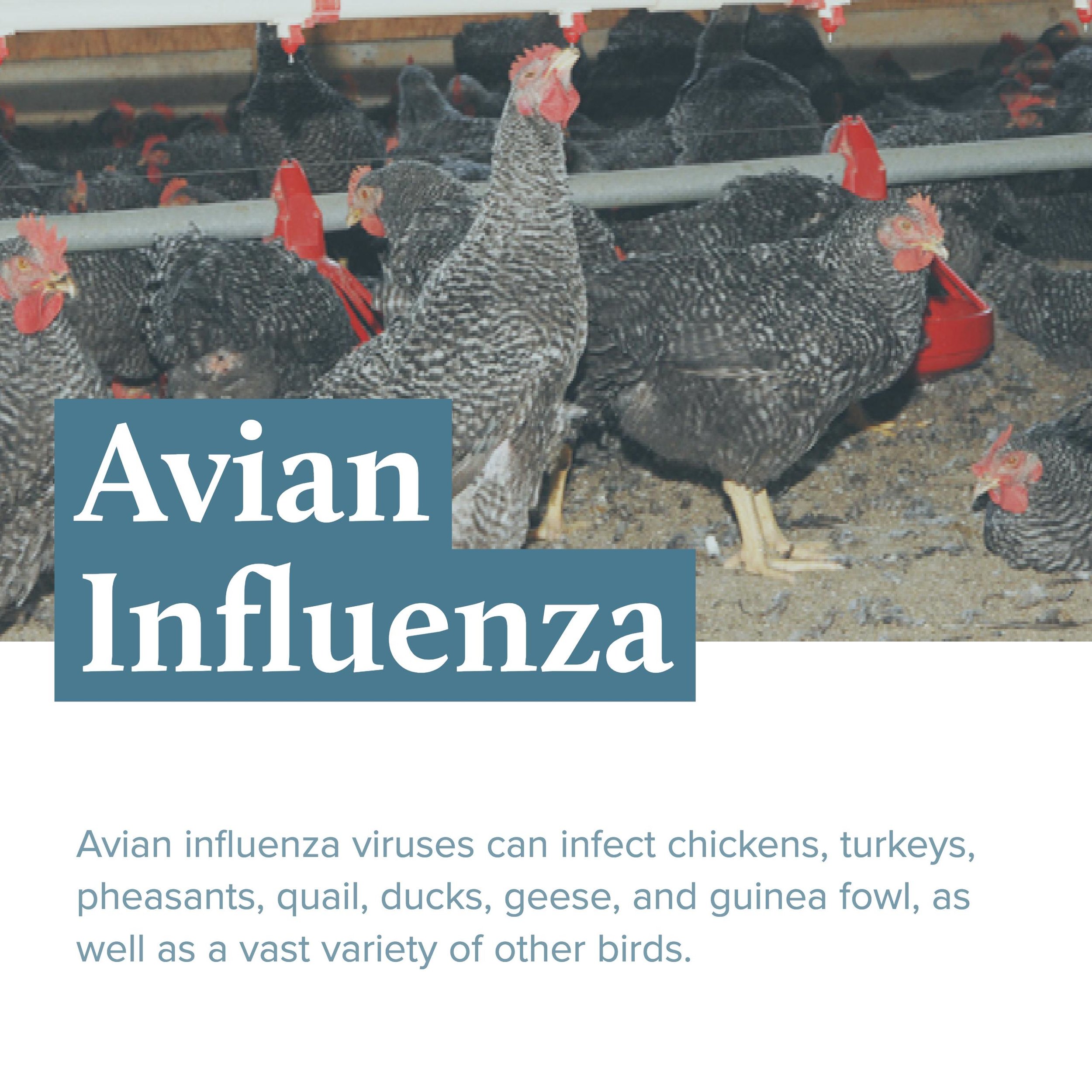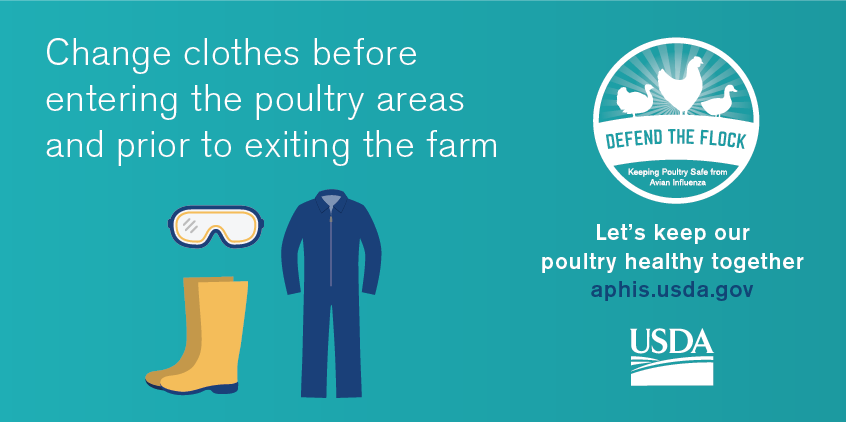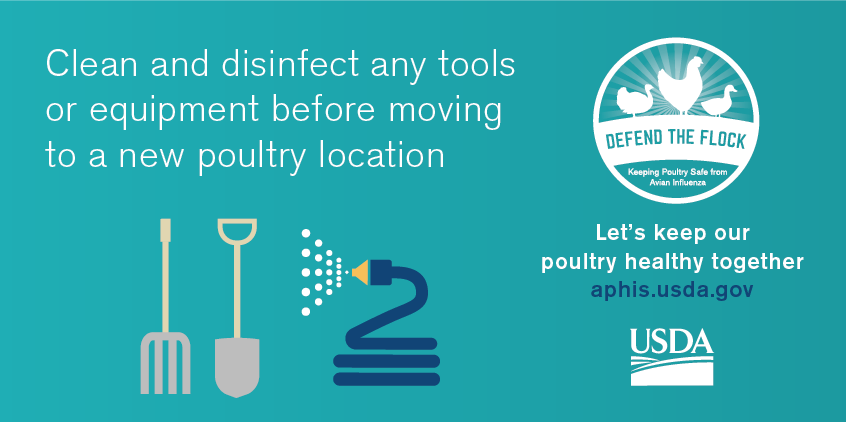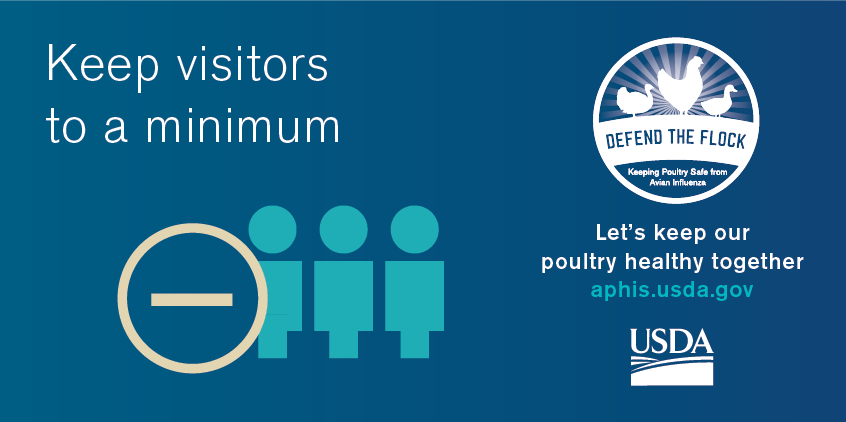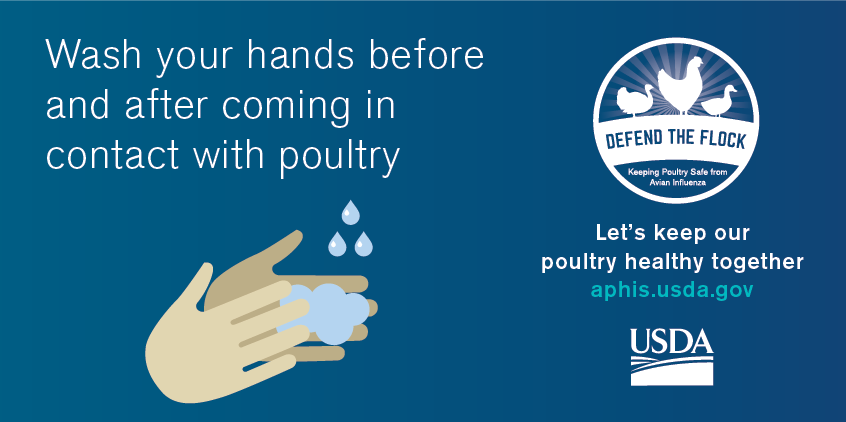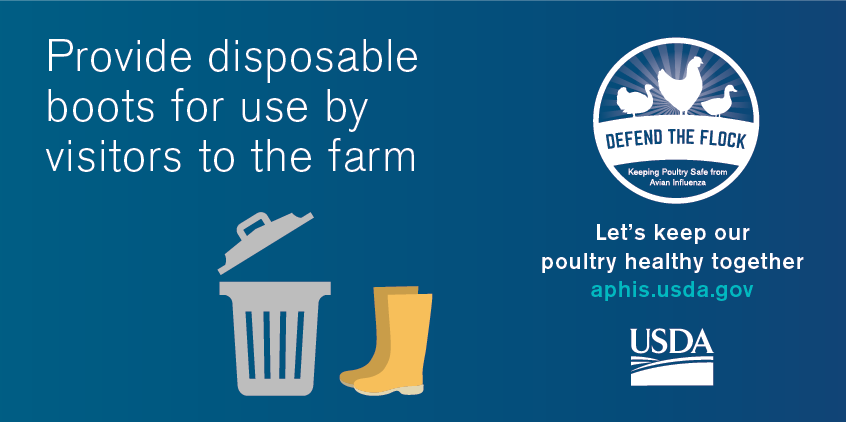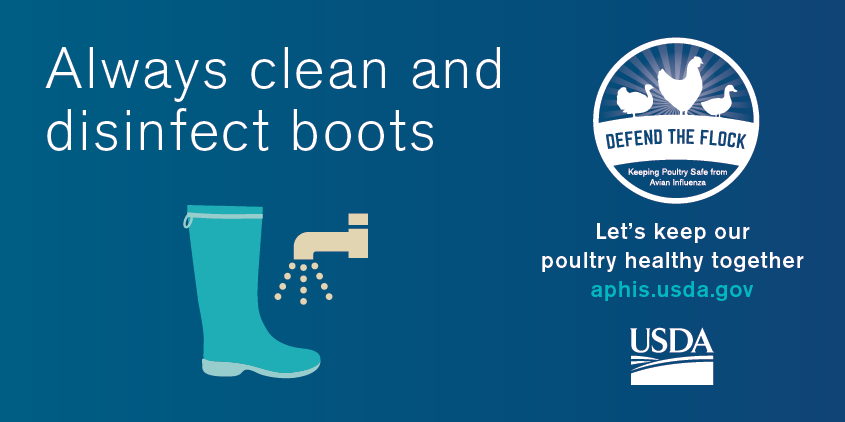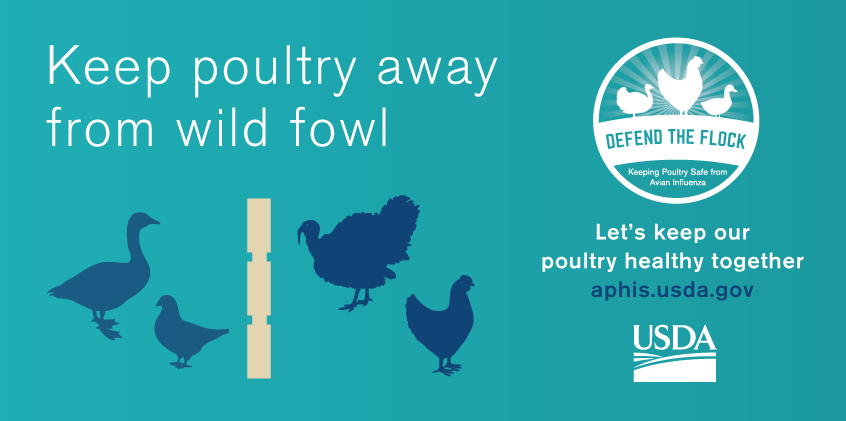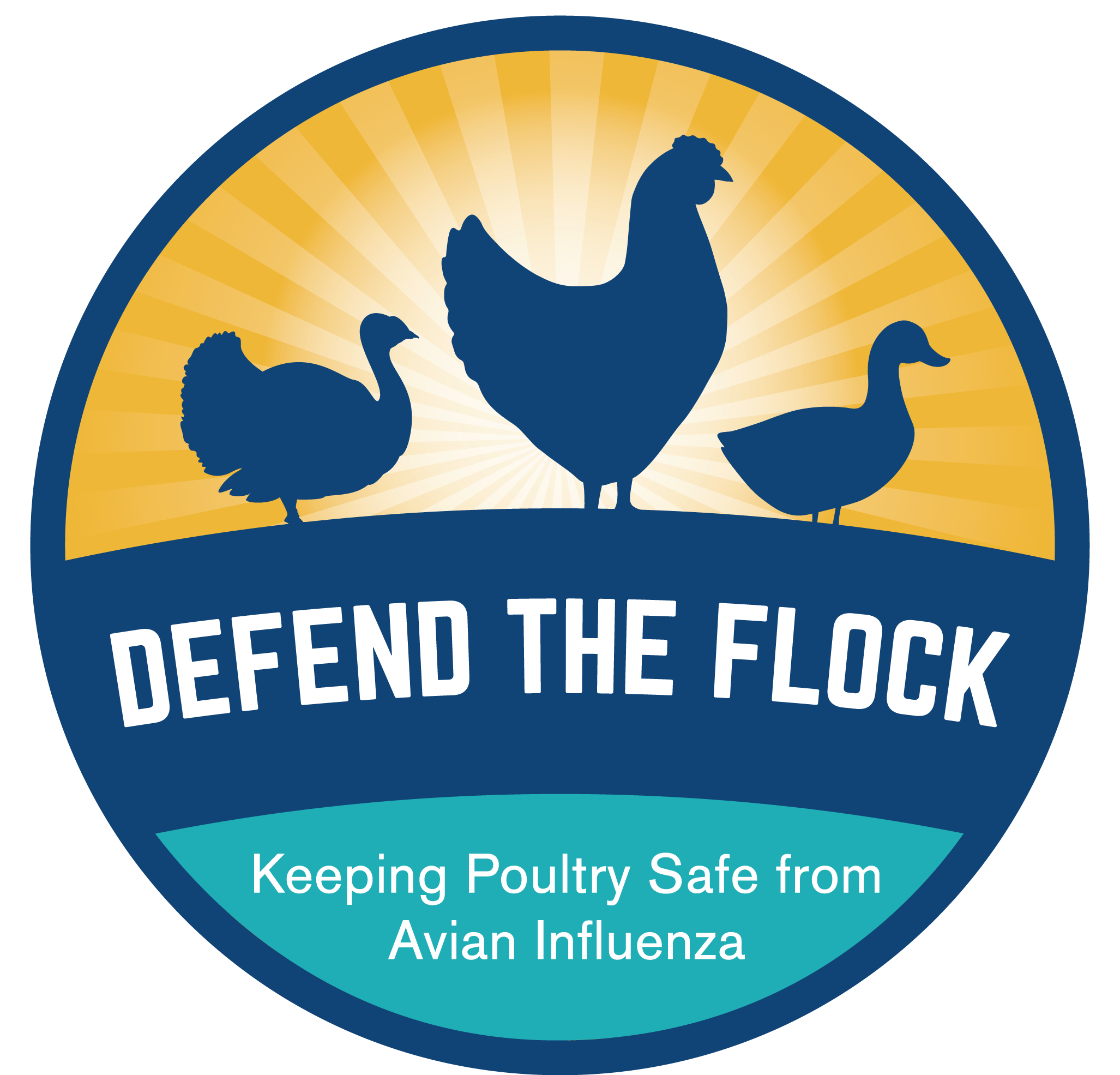What is Exotic Newcastle Disease (END)?
END, also known as virulent Newcastle Disease (vND), is a contagious and fatal viral disease affecting all species of birds.
END is one of the most infectious diseases of poultry in the world and is so fatal that many birds die without showing any signs of disease. The death rate of almost 100 percent can occur in unvaccinated poultry flocks. It can also infect and cause death even in vaccinated birds.
What are the signs?
Exotic Newcastle Disease (END) is a deadly viral disease that can affect all species of birds. END spreads quickly and can infect and cause death even in poultry that is vaccinated. An infected bird may show the following signs:
- Sudden death and increased death loss in flock
- Sneezing, gasping for air, nasal discharge, coughing
- Greenish, watery diarrhea
- Decreased activity, tremors, drooping wings, twisting of the head and neck, circling, complete stiffness
- Swelling around the eyes and neck
How does END spread?
Exotic Newcastle Disease (END) is spread mainly through direct contact between healthy birds and the bodily discharges of infected birds. The disease is transmitted through infected birds' droppings and secretions from the nose, mouth, and eyes. END spreads rapidly among birds kept in a confined space, such as commercially-raised chickens.
Virus-bearing material can be picked up on shoes and clothing and carried from an infected flock to a healthy one. The disease is often spread by vaccination and debeaking crews, manure haulers, rendering truck drivers, feed delivery personnel, poultry buyers, egg service people, and poultry farm owners and employees.
The END virus can survive for several weeks in a warm and humid environment on birds' feathers, manure, and other materials. It can survive indefinitely in frozen material. However, the virus is destroyed rapidly by dehydration and by the ultraviolet rays in sunlight.
Practice Backyard Biosecurity
To help prevent the disease from spreading:
- Restrict traffic onto and off of your property.
- Disinfect shoes, clothes, hands, egg trays or flats, crates, vehicles, and tires.
- Avoid visiting other poultry farms or bird owners. If you do, be sure to change clothes and clean your hands and shoes before entering your own bird area.
Vaccines
Vaccination is another tool to protect your birds against END. Your local agricultural extension office, veterinarian, or feed stores that sell vaccines in your area can give vital information on the proper vaccines for your birds. Good health for your birds benefits everyone.
Smart Practices When Buying Birds
To help be certain of your new birds are healthy, here are a few simple steps you can follow:
- Buy from a reputable dealer.
- Request certification from suppliers that birds were legally imported.
- Maintain records of all sales and shipments of flocks.
- Keep new birds separated from your flock for at least 30 days.
- Keep young and old birds and birds of different species and from different sources apart.
Report Sick Birds
If your birds are sick or dying call your agricultural extension agent, a local veterinarian (call us, River Landings Animal Clinic, at 941-755-4592), or the State Veterinarian, or call the U.S. Department of Agriculture (USDA) at 1-866-536-7593 to be in touch with a local contact.
Hear From Us Again
Don't forget to subscribe to our email newsletter for more recipes, articles, and clinic updates delivered to your inbox (here). Or, you can keep up to date by liking and following our Facebook page (here). We also have additional helpful articles under our new Avian category (here).



